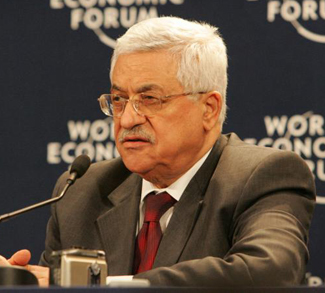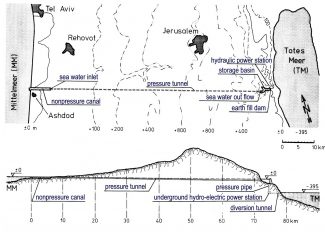About three weeks have gone by since the signing of a ceasefire agreement ended an almost two-month war that left around 2,143 Gazans dead and over 12,000 wounded. Hostilities halted immediately upon signing the agreement, and though the truce is holding on both sides so far, some thorny issues remain unresolved and will need to be addressed in further talks in Cairo this month. The result of these talks will indicate how much willingness there is from all parties to commit to a long-term truce, or alternatively serve as another fiasco with the same (big) loser winning.
Palestinian negotiators are keen to discuss issues like the re-opening of an airport and seaport. “What the Palestinians are asking are just normal things, not demands, they’re absolute rights that any people should have,” British-Palestinian academic Kamel Hawwash emphasized.
Israel doesn’t appear willing to accept any of the Palestinian conditions, even less at a time where Israeli Prime Minister Netanyahu is facing criticism back home for fighting an overly costly conflict without achieving a total military victory over Hamas.
This kind of pessimism is echoed by Frank Barat, coordinator at the Russell Tribunal on Palestine (RToP), who argues that Protective Edge was launched primarily to maintain the status quo in the area. “Every two years Israel bombs Gaza to the ground, a ceasefires comes in, the EU rebuilds, and Gaza remains under siege.”
Like after previous operations and truces, discussion on fundamental issues has been postponed. Ending the siege, the most important Palestinian demand regarding Gaza, is not mentioned by Israel or Egypt, and the related wording used in the media has gradually changed from ‘’lifting’’ to ‘’easing’’ of the blockade.
Prof. Hawwash, who is also vice-chair of the Palestine Solidarity Campaign (PSC), thinks Israel wants to continue to be in control of events in Gaza, just like in the West Bank and East Jerusalem. In order to do that, it won’t allow a complete opening of its border crossings with Gaza, but only ease some aspects of the siege eventually.
“Israel doesn’t want to end the occupation, it thinks it can continue to occupy peacefully so Palestinians accept that they will be forever occupied, and allow Israelis to live as if there is no occupation,” the academic stressed.
Mostafa Kamel El Sayyed, a professor of Middle East Politics at Cairo University, stated that the Israeli government will make the lifting of the siege dependent on the full disarmament of Palestinian groups in Gaza, and if that’s not accepted the issue to discuss will become easing the blockade.
Although international opinion on the siege of Gaza is shifting as more world leaders – including US President Obama – have started to publicly question it, things are still moving slowly in terms of international pressure.
Many don’t see the blockade ending any time soon, despite broad worldwide support from civil society, as long as the US is fully behind Israel, Egypt is assisting, and neither the EU or any Western government is serious about pressing Israel to end the siege.
“I doubt there will be any effective international pressure to end the blockade,” El Sayyed commented, “Pressure will mainly come from global public opinion and some human rights organizations. Israel can live up with that.”
One major area of disagreement is Israel’s demand that Palestinian factions in Gaza disarm, which both Hamas and Islamic Jihad rebuffed without hesitation.
“Disarming Hamas won’t happen,” Prof. Hawwash reiterated, “Any rational person would understand that an occupied people is entitled to resist by using all means including military ones.”
The coming talks will determine whether Israel responds to Hamas’ rejection to disarm with an ‘opt out’ of accepting other Palestinian demands on the table, come up with another proposal to gain some leverage, or ease things up a little bit for Gaza and let the big disputed issues get postponed ‘as normal.’
Hawwash anticipated that, unlikely as it may seem, in the event that disarmament of Palestinian groups became a pre-condition for any other issue on the table, resistance groups could decide to resume attacks on Israel.
According to El Sayyed, also director of the Partners in Development think tank, the way Israel will go back to the negotiating table will depend on the needs of Israel in that moment and the level of concessions it’s prepared to make, whether easing some military restrictions or not making any concessions.
The other complication lies in who’s actually running the show in Gaza: the unity government or the de facto Hamas movement, as Palestinian President Abbas’ has threatened to end the unity agreement if Hamas doesn’t allow the new government to operate in Gaza.
The unity deal, which Israel has vehemently opposed, aims at ending seven years of rivalry between Fatah in the West Bank and Hamas in Gaza. While Hamas and Fatah formed a united front over indirect truce talks with Israel in Cairo, tensions between the rival factions came to the fore again once the latest war on Gaza was over.
President Abbas is eager to regain a foothold in Gaza, which Tel Aviv would definitely welcome, as it would allow it to enjoy the same security cooperation it has with the PA in the West Bank.
With the EU and US classifying Hamas as a terrorist group, the PA is expected to take over responsibility for administering Gaza’s borders from Hamas, and oversee coordination of the reconstruction effort with international donors.
Although Israel agreed to allow humanitarian aid and construction materials into Gaza, not all border crossings will be opened which, given the huge amount of rebuilding involved, will make the reconstruction take much longer than what Gazans need.
At present, the chances that an airport or seaport will be rebuilt in Gaza seem very unlikely.
El Sayyed greatly doubts that Israel would allow it since any (major) concession would allow Hamas to make political gains out of the negotiations, it would mean a weakening sign for Netanyahu.
In view of the upcoming talks, which are stated to resume this week, Egypt is in contact with the two delegations to have them at the table and tackle the bigger issues left for discussion.
Deputy Assistant Foreign Minister Badr Abd El Atty stated that, parallel to that, Egypt is sending invitations to donor nations to participate in an international conference on funding reconstruction of Gaza which will be hosted on October 12 in Cairo, under the auspices of President Abbas.
On Egypt’s border crossing with Gaza, Dr. El Atty insisted on saying it’s been open since the start of Israel’s operation to let injured Palestinians and, on an exceptional basis, to allow the passage of humanitarian aid, despite reports that the border has not been fully opened.
One major issue to be raised between Egypt and the Palestinians remains the permanent opening of the Rafah crossing. Cairo has been adamant that it will not open the Rafah crossing completely and it will not allow it to function normally without the presence of the Palestinian Presidential Guard (to replace Hamas).
El Atty pointed out that opening of the Rafah crossing is connected with the security of Sinai: “Handling of the border crossing is under the full sovereignty of Egypt, and it goes with the military action taken by the Egyptian authorities against terrorist organizations in Sinai.”
El Sayyed anticipated that the Egyptian government would try to broaden the scope of the ceasefire to embrace the Palestinian/Israeli question in order to pursue a compromise led by PA leader Abbas and diminish Hamas’ popularity. The US and Israel would undoubtedly support Egypt in this.
Last but not the least: how has the international community contributed – or rather not contributed – to what they call a ‘sustainable ceasefire’? Just days before the truce was announced, Britain, France, and Germany put forward key points of a new UNSC resolution to end the violence, calling for a lifting of the Israeli blockade and a monitoring mechanism to report on ceasefire violations and verify the flow of goods into Gaza.
For Prof. Hawwash, the headline of the proposal seemed to be about disarmament. At least based on the idea of international border monitors to prevent the rearming of Hamas and other groups. Again, any lifting of Gaza blockade would be pending on demilitarization of the resistance groups.
Since the Egypt-brokered ceasefire came into effect, we haven’t heard about a UNSC resolution draft – with the disarmament clause – nor of any international initiative demanding an unconditional end of Israel’s siege.
Meanwhile, again, border restrictions remain in place, drones scan Gaza’s skyline, bulldozers move inside Gazan territory, and warships open fire at Gazan fishermen. Another ceasefire breached, another zero solution for Gaza.
The opinions, beliefs, and viewpoints expressed by the authors are theirs alone and don’t reflect any official position of Geopoliticalmonitor.com.




